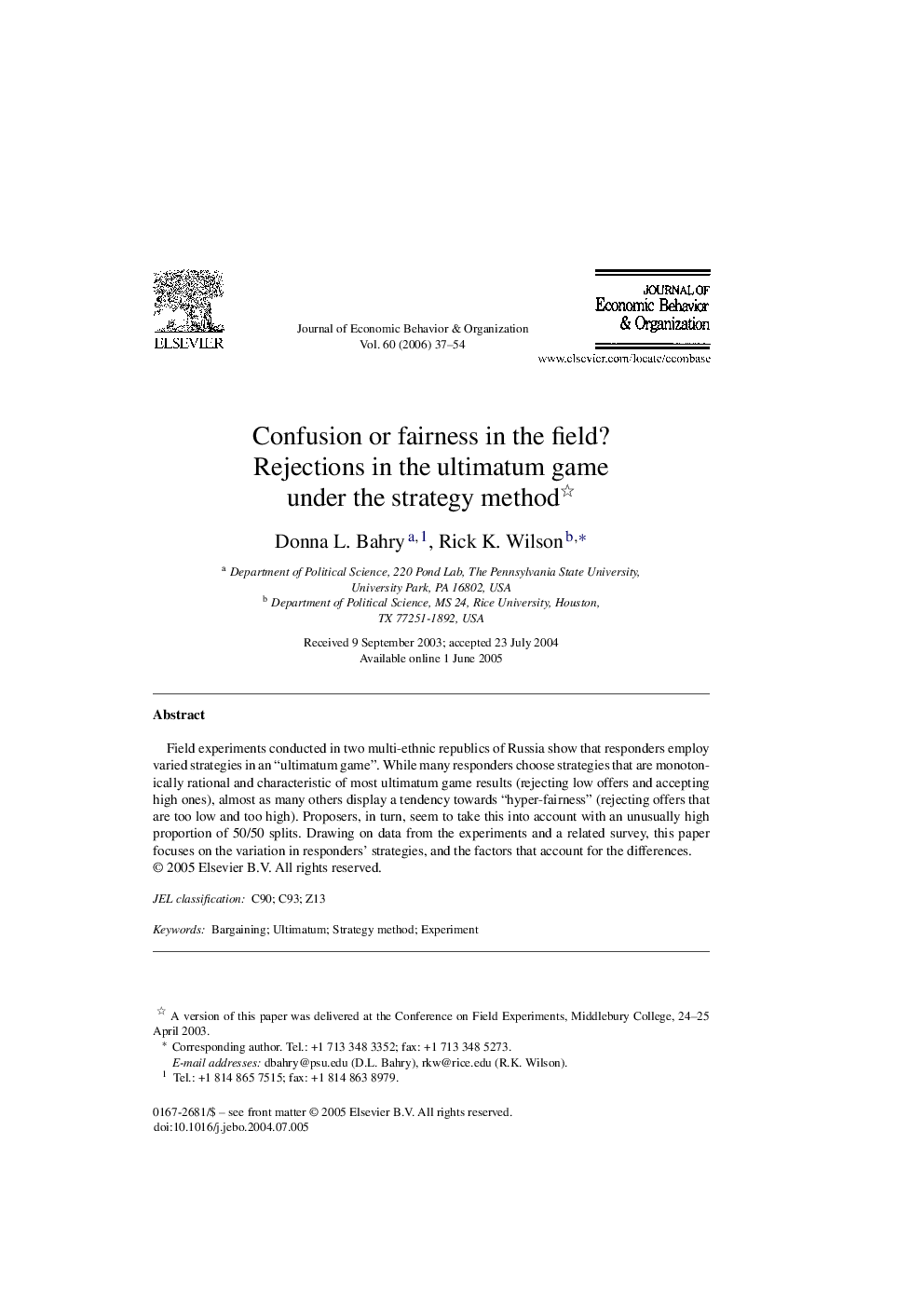| Article ID | Journal | Published Year | Pages | File Type |
|---|---|---|---|---|
| 884820 | Journal of Economic Behavior & Organization | 2006 | 18 Pages |
Abstract
Field experiments conducted in two multi-ethnic republics of Russia show that responders employ varied strategies in an “ultimatum game”. While many responders choose strategies that are monotonically rational and characteristic of most ultimatum game results (rejecting low offers and accepting high ones), almost as many others display a tendency towards “hyper-fairness” (rejecting offers that are too low and too high). Proposers, in turn, seem to take this into account with an unusually high proportion of 50/50 splits. Drawing on data from the experiments and a related survey, this paper focuses on the variation in responders’ strategies, and the factors that account for the differences.
Related Topics
Social Sciences and Humanities
Economics, Econometrics and Finance
Economics and Econometrics
Authors
Donna L. Bahry, Rick K. Wilson,
